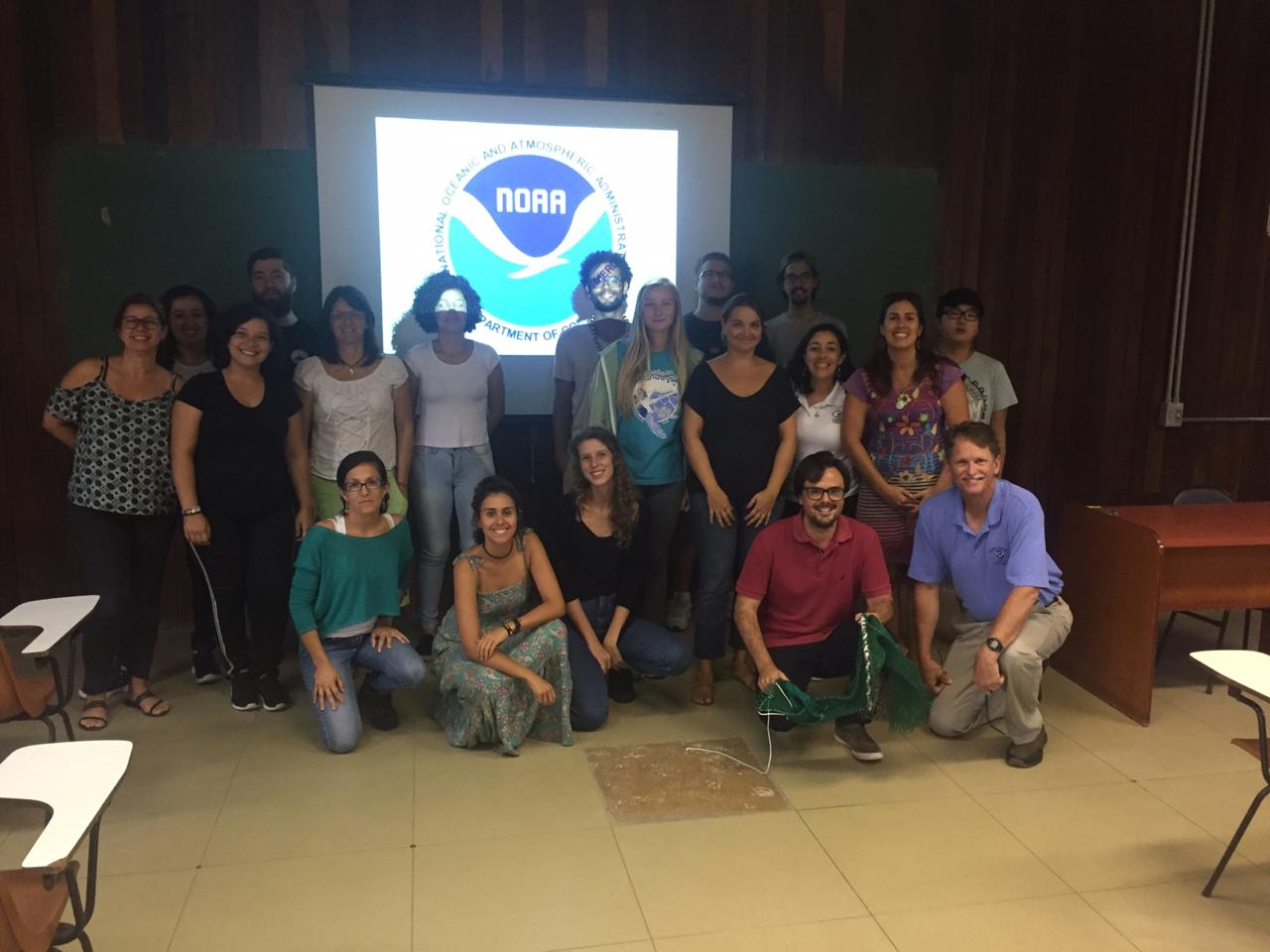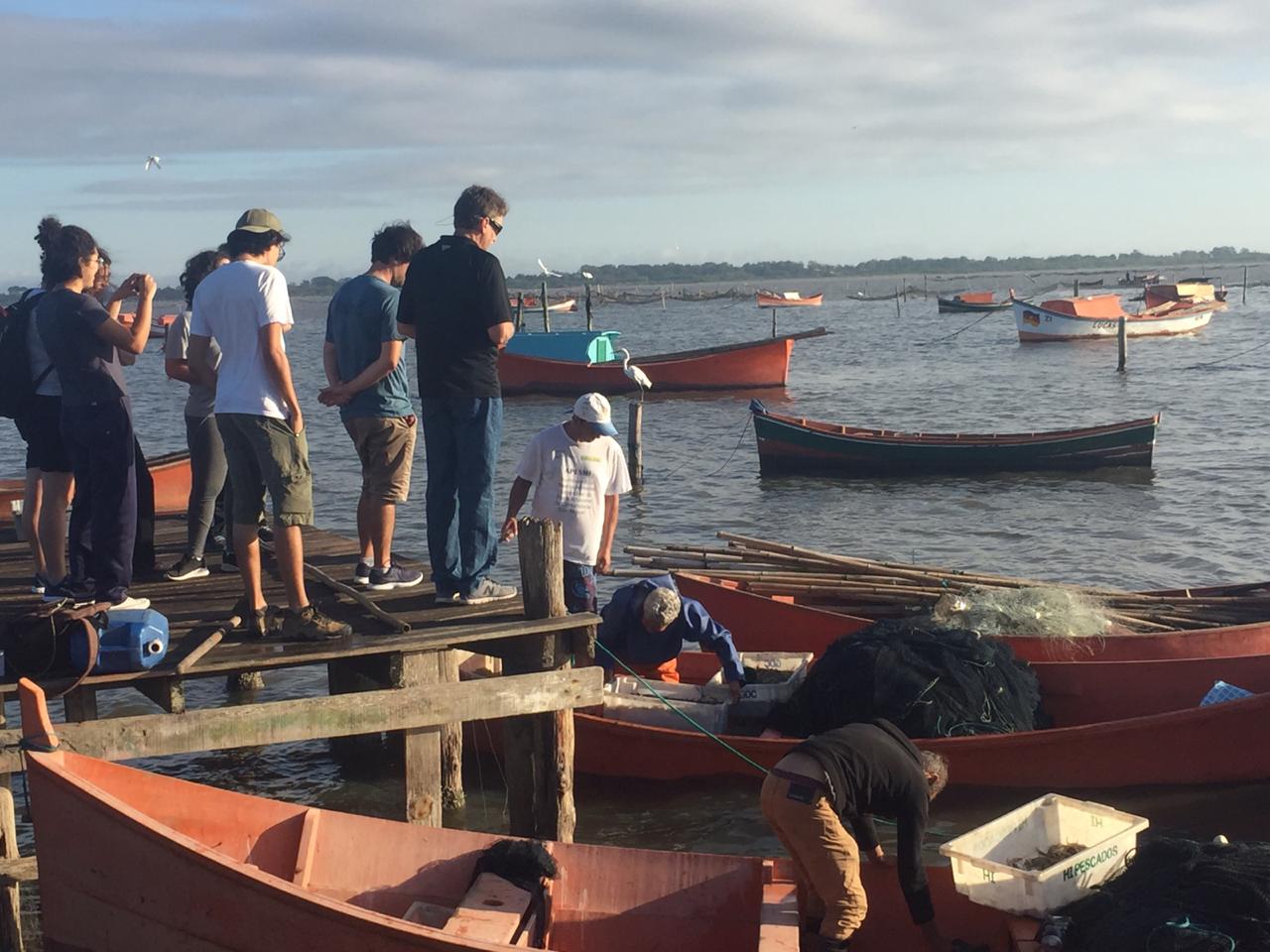Trawling for shrimps is among the most harmful activities performed in the oceans, either for producing one of the highest known discard ratios or for the physical disturbance caused by the contact of the gears with the bottom. The worldwide bycatch ratio originated from this fishery is of 5 kg of discarded fish to catch 1 kg of shrimp. Therefore, several international initiatives are being held to mitigate this impact on the ocean and coastal zones, including estuaries. One of these initiatives is the REBYC – II LaC, an international project funded by Food and Agriculture Organization (FAO).
The main goal of this project is to establish a baseline knowledge on bycatch composition and abundance and developing technological solutions and gear modifications to reduce the impact of this fishery on the environment. One of the partners of REBYC Project is the National Oceanic and Atmospheric Agency (NOAA) Fisheries in Mississipi (USA), providing technical support and training for researchers and fishers involved. The local coordinator of the project (Felipe Dumont) has performed a technical visit during 2017 and, after that, NOAA Fisheries has received a PhD. student for a training program, strengthening the collaboration with the Federal University of Rio Grande (FURG) and its Graduation Program in Biological Oceanography (PPGOB). With the aim of expanding the scientific exchange between NOAA and FURG, the fishing gear specialist, Daniel Foster, was invited to offer a course to students and researchers of the PPGOB) at FURG.Local fishers were also invited to attend, since they have a great knowledge on the fishery and the fishing gears.
NOAA’s expert Daniel Foster is responsible for international certification of shrimp fisheries, providing technical assistance to the countries that are intending to export this product to USA. Nowadays, the Brazilian shrimp trawling fisheries are not certified to export shrimp to USA and this visit may contribute to change this scenario. The topics of the course ranged from the history of fishing law on shrimp to fish behavior and its influence on selectivity of the nets. The course is a great opportunity to share scientific and technological experiences between local students and one of the most experienced fishing gear specialist. This activity is within the scope of two Projects of the PrInt/FURG: Bio/Geodiversity and Bio/Geoprospecting in Coastal and Oceanic Ecosystems as well as Food Security and Quality from Coastal and Oceanic Marine Living Resources. The course was taught in English and was attended by 15 students, undergraduate and graduate students, researchers and technicians.
 |
 |





